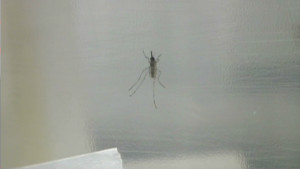Asia sees spike in dengue fever outbreaks
By Katie Hunt, CNN, Re-posted by Abdulgafar Abdulrauf Adio (www.econsforumnews.blogspot.com)
 Hong Kong (CNN) -- Southern China is suffering from
its worst outbreak of dengue fever in two decades, with 1,000 new cases
of the potentially fatal mosquito-borne disease emerging each day, according to official media reports.
Hong Kong (CNN) -- Southern China is suffering from
its worst outbreak of dengue fever in two decades, with 1,000 new cases
of the potentially fatal mosquito-borne disease emerging each day, according to official media reports.


 Hong Kong (CNN) -- Southern China is suffering from
its worst outbreak of dengue fever in two decades, with 1,000 new cases
of the potentially fatal mosquito-borne disease emerging each day, according to official media reports.
Hong Kong (CNN) -- Southern China is suffering from
its worst outbreak of dengue fever in two decades, with 1,000 new cases
of the potentially fatal mosquito-borne disease emerging each day, according to official media reports.
Local health authorities
in China warned the situation was "severe," with six deaths and 21,527
infections recorded in Guangdong province in southern China by Sunday.
Elsewhere in Asia, Malaysia and Taiwan have reported more cases and deaths in 2014 than in previous years, and Japan has seen more than 150 infections in its first outbreak of the tropical disease since 1945, according to news agency Kyodo.
And a new study released
this week found that dengue cases in India may be 300 times the number
officially reported. The disease costs the country at least $548 million
a year.
Hot and cold

Dengue fever outbreak hits Japan

Fighting mosquitoes with mosquitoes
The outbreak in China is
spreading quickly, with more than 1,000 new cases found each day last
week. In some hospitals, hundreds of patients stream in daily
complaining of dengue-like symptoms.
"I feel very hot on the skin, but cold inside my body," one man told CCTV, China's state television.
The viral disease is also called "breakbone fever" because of the severe muscle and joint pain it causes.
There's no approved vaccine or specific drug to treat dengue, which is not usually fatal but lands many victims in hospitals.
Chinese authorities say recent hot and wet weather fueled the outbreak, with mosquito numbers up five fold.
After a week-long
national holiday, authorities are now scrambling to fumigate mosquito
breeding sites with pesticide. Residents in the city of Guangzhou are
being offered free mosquito repellent.
The World Health
Organization lists dengue fever as a "neglected disease" and estimates
that there may be 50 to 100 million dengue infections worldwide each
year.
However, research published last year suggested that around 390 million people are infected each year -- more than triple the WHO's estimate.
Spread by a type of of
mosquito (Aedes aegypti), the disease thrives in tropical mega cities
like Guangzhou thanks to rapid urbanization and population movement.
Climate change is also a factor, giving rise to longer periods that infected mosquitos can survive.










0 comments:
Post a Comment